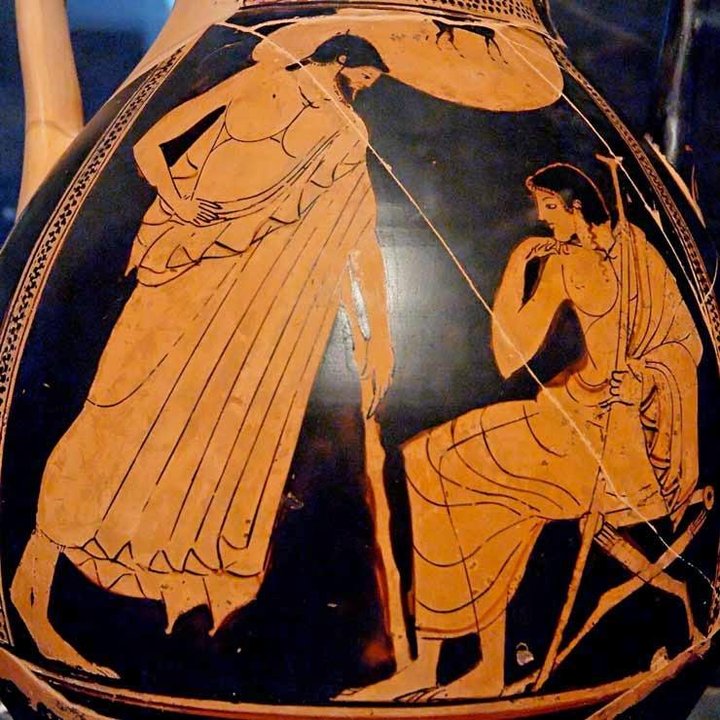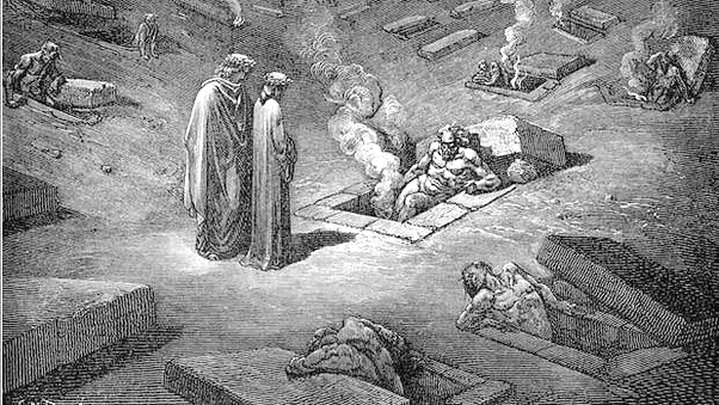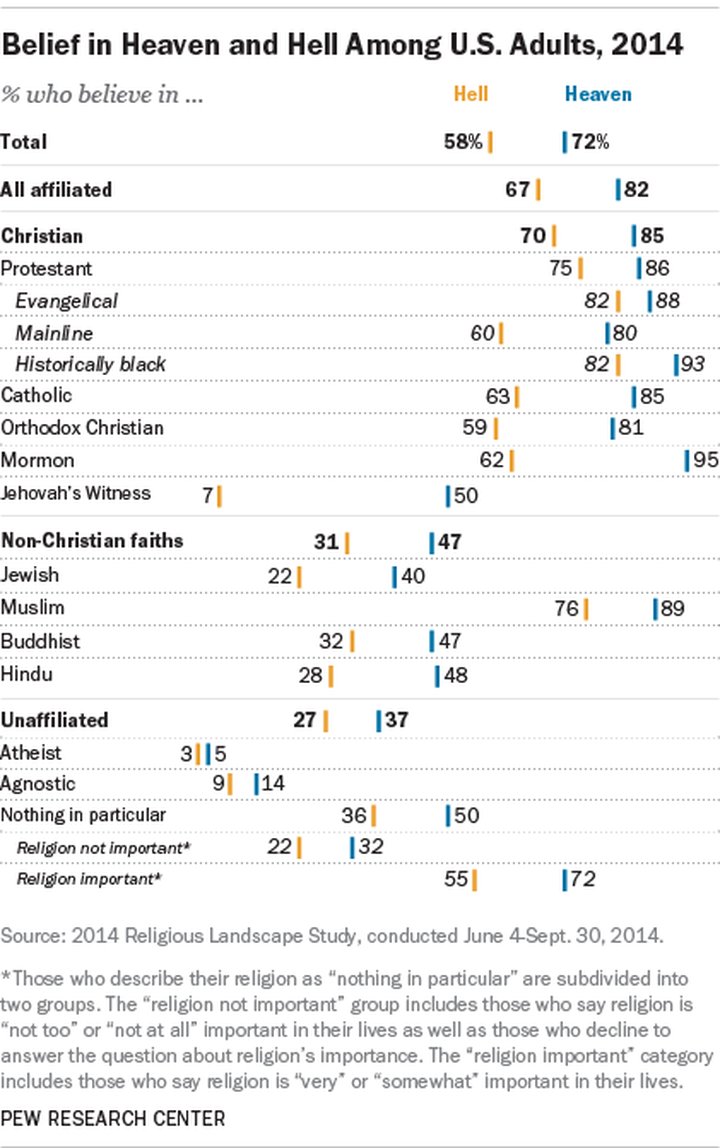Where did the Prince of Peace come up with the idea of sinners spending an eternity in hell? The first — of 11 — references to hell (Gehenna*) comes in the Sermon on the Mount: “But I say unto you, That whosoever is angry with his brother without a cause shall be in danger of the judgment…whosoever shall say, Thou fool, shall be in danger of hell fire.” In Mark, Jesus emphasizes the eternal aspect: “…to hell, to the unquenchable fire.”
[* Gehenna/Hinnom, a small valley on the southeast outskirts of Jerusalem, was cursed because of child sacrifices made there to the god Moloch: “…the valley of the son of Hinnom, to burn their sons and their daughters in the fire…”]
Jesus certainly didn’t get the notion of hell from what we now call the Old Testament. Hebrews, good and bad, went to sheol,* a dark, dank and silent place similar to Hades, the land of the dead, visited by Homer’s Odysseus on his long and convoluted journey from the wreckage of Troy. There, Odysseus encountered the ghost of Achilles, whose wrath was the proximate cause of the Trojan War. How cool that you get to be the boss down here, fawns Odysseus: “There’s not a man in the world more blest than you…down here, I see, you lord it over the dead in all your power.” To which Achilles caustically responds, “By god, I’d rather slave on earth for another man — some dirt-poor tenant farmer who scrapes to keep alive — than rule down here over all the breathless dead.”

Odysseus with Achilles in the underworld. Attica red-figure vase, ca. 480 BC.
[* Ecclesiastes, in this as in most things, bravely contradicts the rest of the OT: “…but the dead know not any thing.]
So the ancient Greek underworld, like the Hebrew sheol, was a pretty dismal spot to end up in. But it was nothing compared to the hellfire and brimstone promised by Jesus for sinners. Did He come up with everlasting torture out of thin air? Perhaps influenced by Essene beliefs?* We’ll never know. What we do know is that His pronouncements gave rise to an enormous literature expounding on exactly what we (you and me, bro, unless you’ve been awfully good) can expect when we shuffle off life’s mortal coil.
[* Writing in the first century, Josephus reported that the Jewish Essene sect believed that “souls are immortal, and continue forever. This is like the opinion of the Greeks…They allot to bad souls a dark and tempestuous den, full of never-ceasing punishments.”]
Thomas Aquinas (1225-1274) made sure his readers not only understood the terrors of hell — the stick — but added the carrot, that if you were good and went to heaven, you got to enjoy a particularly delicious type of schadenfreude if you were into this sort of thing: “Therefore, in order that the happiness of the saints may be more delightful to them and that they may render greater thanks to God for it, they are allowed to see perfectly the sufferings of the damned.”
Half a century later, the Italian poet Alighieri Dante described, in (literally) excruciating detail, what awaits those of us condemned to spend forever in hell. I’ll probably end up in the sixth of his nine circles of hell, since that’s where Dante (guided by Virgil) meets Epicurus, the Greek heretic who preached that “the soul dies with the body,” a prospect that Epicureans delighted in, since there would be nothing more to fear. (Shakespeare put it even more graphically with Macbeth’s “Out, out brief candle” — works for me!)

Dante and Virgil visit the sixth circle of hell. (Paul Gustave Doré, public domain)
Skipping a century or two, Martin Luther’s heretical beliefs gave the world — Europe, anyway — Protestantism, and with it, new opportunities to taunt the other side with hellish prospects. Catholics in the 16th century were convinced that Luther and his fellow reformers would end up burning in that unquenchable fire, while Protestants, remembering, perhaps, Dante’s vision of Pope Nicholas III dangling upside-down in a pit of fire (eighth circle), took comfort in anticipating eternal punishment for the Pope, bishops and all the other servants of the Mother Church.
But hey, that was all long ago, no one believes this shit anymore, right? Oh wait…58% of us do. What the hell?


Billboard on I-71, Ohio, following the dictum of Salvation Army founder General Booth: “[People] must have hell-fire flashed before their faces or they will not move.” (Unknown photographer)
CLICK TO MANAGE